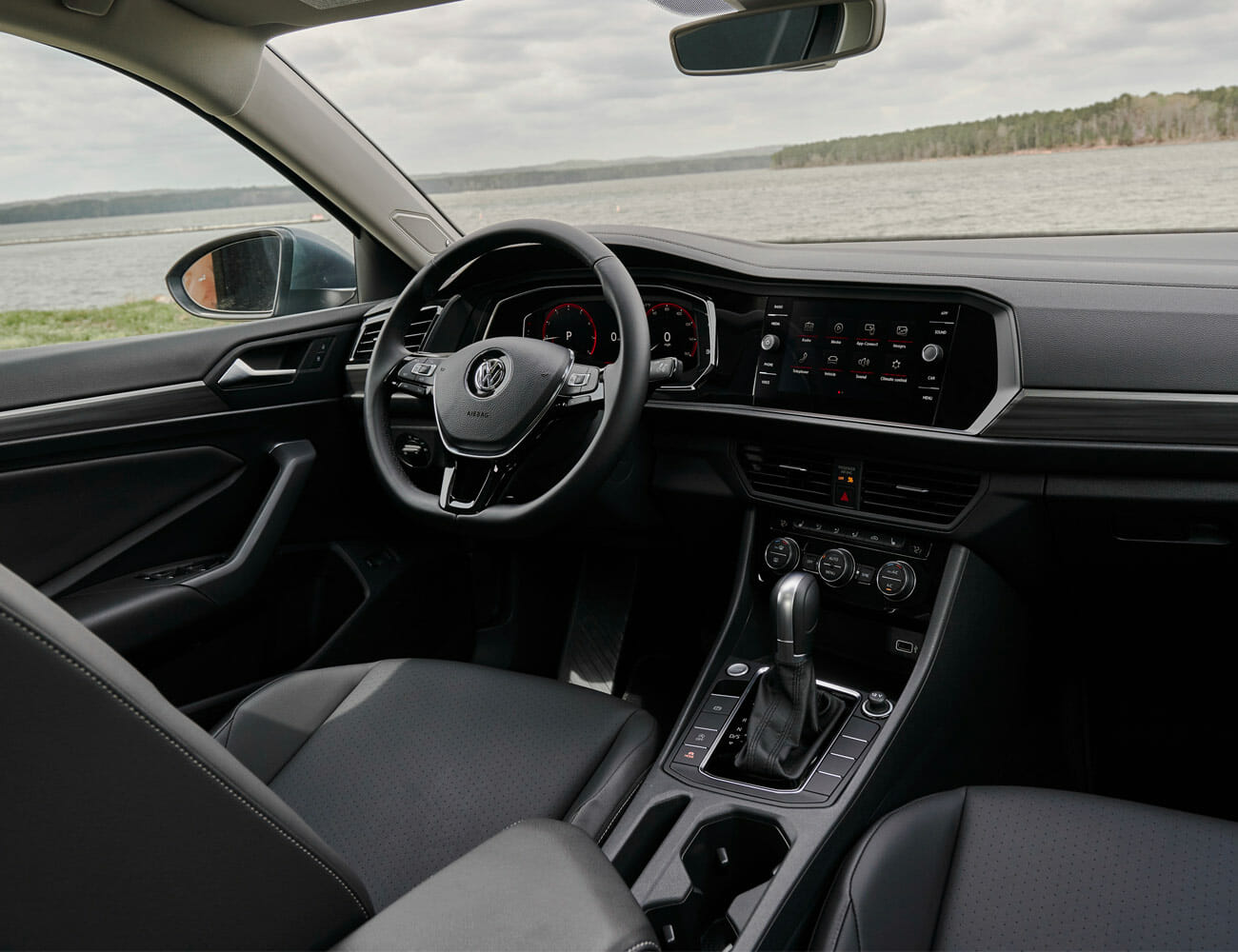The Volkswagen Jetta has a simple origin story. The compact, practical Mk1 Golf was a major hit in the 1970s, but not everyone was crazy about the hatchback body style. So, VW made a sedan version for the 1980 model year — the Jetta. It became a great cheap value car for young professionals, students and stick-shift-wielding German car enthusiasts on a budget alike, and has been a sales mainstay for VW ever since. If you grew up in the burbs, you likely knew at least one sibling, friend or classmate who drove a Jetta…if you didn’t drive one yourself.
VW debuted the current seventh-generation Jetta, which rides on the modern MQB platform, for the 2019 model year. It brings more distinctive style, updated tech, and a slight increase in size. I spent a week with the fully-loaded SEL Premium trim; I can’t say the Jetta offers the most engaging driving experience ever — I drove the legendary VW GTI just before, which may have biased my opinion — but it’s still a solid, composed little sedan. It refreshes a classic formula, and offers a substantial upgrade over its predecessor. And it’s easy to see why, even in a brutal market for sedans, Volkswagen still sold more than 100,000 of them last year.

The Jetta looks more sophisticated than the previous generation
Style may be the biggest change buyers notice with the Jetta. Unlike the bland sixth generation, this car actually has some. VW gave the new Jetta a bolder grille and sharp creases down the length of the body. It demands to be looked at…to the extent one would look at a budget sedan.
The interior feels clean and benefits from VW’s new digital instrument display, if you’re into that sort of thing, and the latest infotainment module. My two-year-old initially mistook it for “Baba’s car” — my dad drives a 2016 Mercedes-Benz E-Class sedan — which didn’t feel entirely off base.
VW did apparently cut some corners. The Jetta carries over some switchgear and the same steering wheel VW has been using for ages. And if you start feeling around in areas you would only touch while searching for cheap plastic…you will find cheap plastic. But if you don’t review cars for a living, you won’t notice either of those things.
The Jetta drives well enough, even if it’s not that sporty.
The Jetta delivers a softer driving experience than the Golf. It employs the same torquey 1.4-liter 147 horsepower four-pot engine, but it’s not a tightly wound corner carver like the Golf or GTI. The Jetta has a decent amount of pop at low-speed driving, and I can admit I had a little fun manually shifting the slushbox and pretending it was the six-speed (available on the base and R-line trims). It’s not as spirited when trying to pass on the highway, though.

The main trouble for the Jetta is that the excellent Honda Civic exists in the same price range, starting just under $20,000. And, if you want spirited driving, it’s not that much of a jump to the excellent 205-hp Civic Si.
This VW makes a strong case for the survival of the sedan
Cheap subcompact crossovers have become a hot segment. The Jetta makes a strong case for those buyers to part from the herd and buy a good old-fashioned sedan. The Jetta starts at $18,896, about $1,000 cheaper than a Ford EcoSport and more than $2,000 cheaper than a Chevy Trax. The Jetta offers a substantially more polished driving experience; plus, it gets better fuel economy (34 mpg combined) without resorting to a buzz-killing CVT. The redesign even gives the Jetta a surprisingly spacious trunk, with a wide opening when you fold the seats for added room. VW’s asking price will target singles, but the Jetta can be practical for a small family.
Price as Tested: $28,865
Drivetrain: Turbocharged 1.4-liter inline-four, eight-speed automatic, front-wheel drive
Power: 147 hp, 184 lb-ft
Fuel Economy: 30 mpg city, 40 mpg highway
Seats: 5
Volkswagen provided this product for review.

